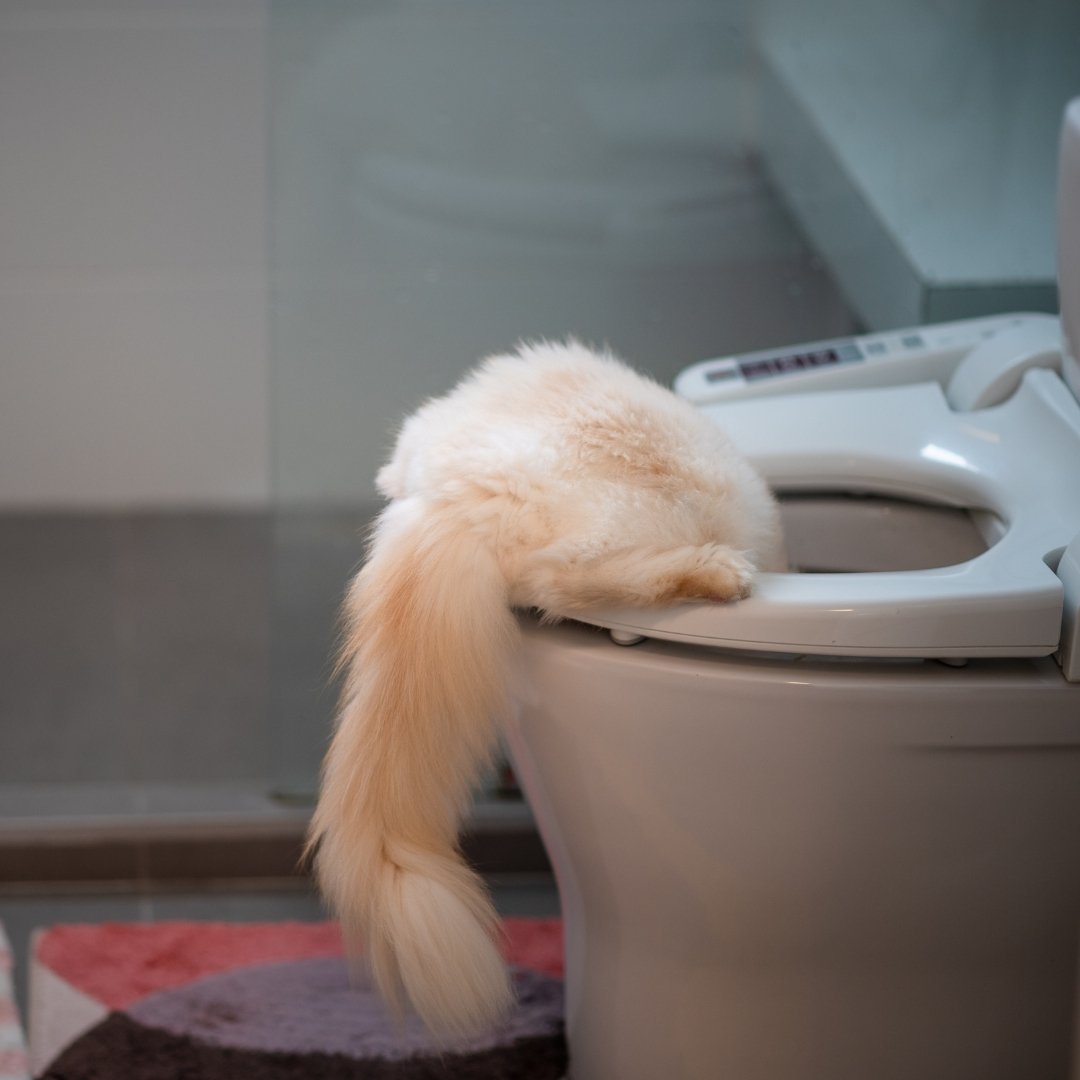Prevent Plumbing Problems: Don't Flush Cat Poop Down Your Toilet - Expert Advice
Prevent Plumbing Problems: Don't Flush Cat Poop Down Your Toilet - Expert Advice
Blog Article
Every person maintains their private way of thinking involving Don’t flush cat feces down the toilet.

Intro
As feline proprietors, it's important to bear in mind how we deal with our feline pals' waste. While it may seem hassle-free to purge pet cat poop down the bathroom, this method can have harmful repercussions for both the setting and human health and wellness.
Alternatives to Flushing
The good news is, there are much safer and much more responsible means to get rid of cat poop. Think about the following choices:
1. Scoop and Dispose in Trash
One of the most common method of disposing of cat poop is to scoop it right into a naturally degradable bag and throw it in the garbage. Be sure to make use of a committed trash scoop and get rid of the waste without delay.
2. Use Biodegradable Litter
Choose biodegradable pet cat trash made from materials such as corn or wheat. These clutters are eco-friendly and can be safely disposed of in the garbage.
3. Bury in the Yard
If you have a yard, think about burying feline waste in a marked location away from veggie gardens and water resources. Make certain to dig deep enough to avoid contamination of groundwater.
4. Set Up a Pet Waste Disposal System
Purchase a pet garbage disposal system particularly designed for feline waste. These systems use enzymes to break down the waste, minimizing odor and ecological impact.
Wellness Risks
In addition to ecological concerns, purging cat waste can likewise pose health and wellness threats to people. Pet cat feces may have Toxoplasma gondii, a parasite that can trigger toxoplasmosis-- a potentially severe health problem, especially for expecting ladies and individuals with weakened immune systems.
Environmental Impact
Flushing feline poop introduces damaging microorganisms and bloodsuckers right into the supply of water, posturing a significant danger to marine communities. These impurities can adversely impact aquatic life and concession water quality.
Conclusion
Responsible family pet ownership extends beyond offering food and shelter-- it additionally entails correct waste administration. By refraining from flushing feline poop down the toilet and opting for alternative disposal approaches, we can decrease our ecological footprint and protect human health.
Why You Should Never Flush Cat Poop Down the Toilet
A rose by any other name might smell as sweet, but not all poop is created equal. Toilets, and our sewage systems, are designed for human excrement, not animal waste. It might seem like it couldn’t hurt to toss cat feces into the loo, but it’s not a good idea to flush cat poop in the toilet.
First and foremost, assuming your cat uses a litter box, any waste is going to have litter on it. And even the smallest amount of litter can wreak havoc on plumbing.
Over time, small amounts build up, filling up your septic system. Most litter sold today is clumping; it is made from a type of clay that hardens when it gets wet. Ever tried to scrape old clumps from the bottom of a litter box? You know just how cement-hard it can get!
Now imagine just a small clump of that stuck in your pipes. A simple de-clogger like Drano isn’t going to cut it. And that means it’s going to cost you big time to fix it.
Parasitic Contamination
Believe it or not, your healthy kitty may be harboring a nasty parasite. Only cats excrete Toxoplasma in their feces. Yet it rarely causes serious health issues in the cats that are infected. Most people will be fine too if infected. Only pregnant women and people with compromised immune systems are at risk. (If you’ve ever heard how women who are expecting are excused from litter cleaning duty, Toxoplasma is why.)
But other animals may have a problem if infected with the parasite. And human water treatment systems aren’t designed to handle it. As a result, the systems don’t remove the parasite before discharging wastewater into local waterways. Fish, shellfish, and other marine life — otters in particular — are susceptible to toxoplasma. If exposed, most will end up with brain damage and many will die.
Depending on the species of fish, they may end up on someone’s fish hook and, ultimately on someone’s dinner plate. If that someone has a chronic illness, they’re at risk.
Skip the Toilet Training
We know there are folks out there who like to toilet train their cats. And we give them props, it takes a lot of work. But thanks to the toxoplasma, it’s not a good idea.

I'm very involved in How to Dispose of Cat Poop and Litter Without Plastic Bags and I hope you appreciated my entry. Enjoyed our blog? Please share it. Let somebody else find it. I praise you for your time. Visit us again soon.
Click On This Link Report this page